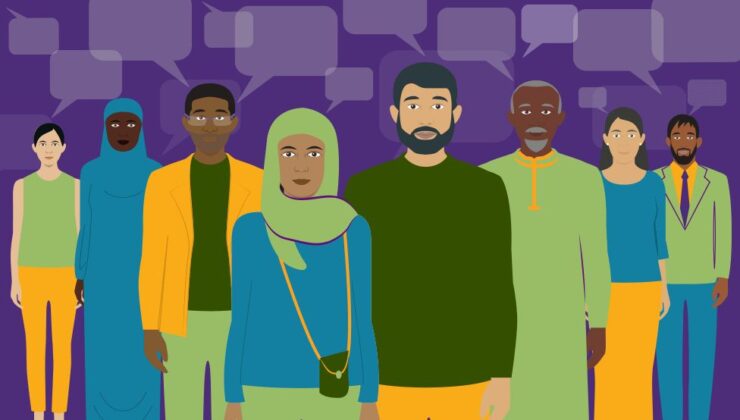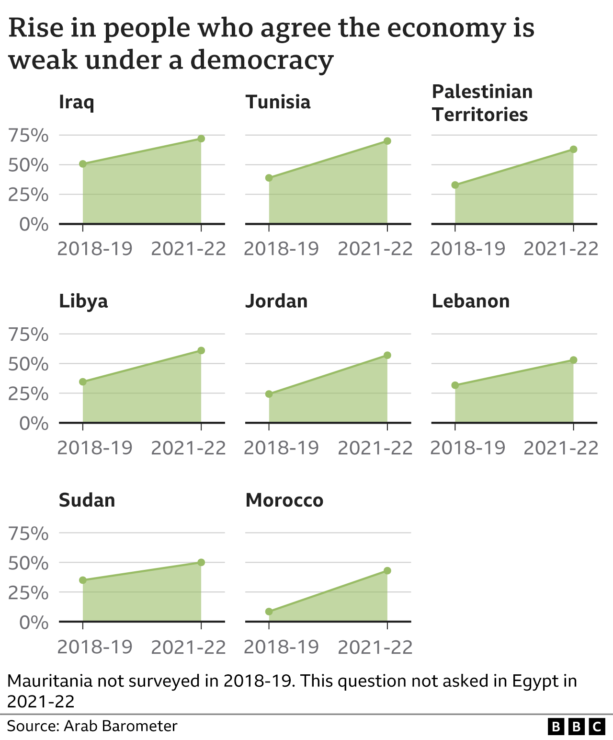
Arabs are losing faith in democracy to deliver economic stability across the Middle East and North Africa, according to a major new survey.
Nearly 23,000 people were interviewed across nine countries and the Palestinian territories for BBC News Arabic by the Arab Barometer network.
Most agreed with the statement that an economy is weak under a democracy.
The findings come just over a decade after the so-called Arab Spring protests called for democratic change.
Less than two years after the protests, just one of those countries – Tunisia – remained a democracy, but a draft constitution published last week could push the country back towards authoritarianism, if approved.
Michael Robbins, director of Arab Barometer, a research network based at Princeton University which worked with universities and polling organisations in the Middle East and North Africa to conduct the survey between late 2021 and Spring 2022, says there has been a regional shift in views on democracy since the last survey in 2018/19.
“There’s a growing realisation that democracy is not a perfect form of government, and it won’t fix everything,” he says.
“What we see across the region is people going hungry, people need bread, people are frustrated with the systems that they have.”

Across most of the surveyed countries, more than half of respondents, on average, agree with the statement that the economy is weak under a democratic system.
In every country surveyed, more than half also say they either agree or strongly agree that they are more concerned about the effectiveness of their government’s policies, than they are about the type of government…


